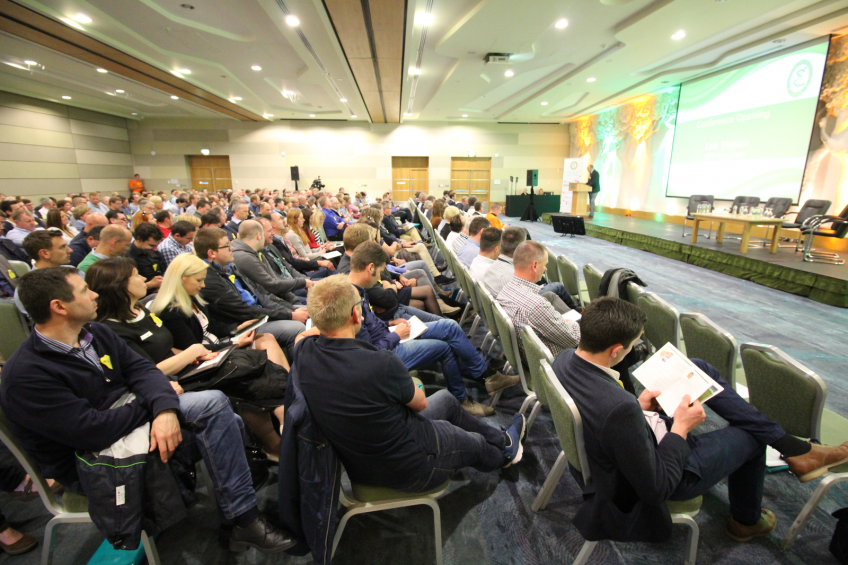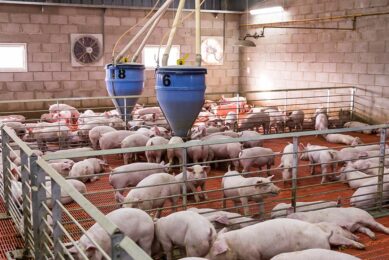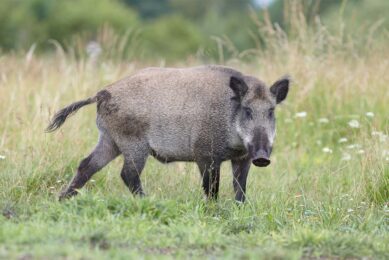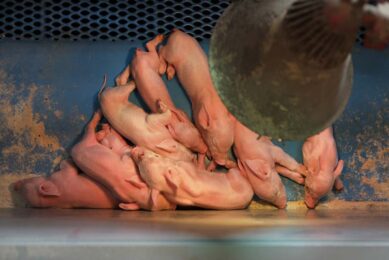Algae solutions for pigs prevail at EPP congress

Many players in the Irish agribusiness believe that algae could be at the basis of a more sustainable future for pig farming. At the European Pig Producers congress, held 25-27 May in Dublin, Ireland, various algae-based solutions were presented.
It is no surprise that algae-related solutions are a big thing in Ireland. After all, the island is surrounded by sea, making seaweeds abundant. That seaweeds have a lot of opportunities to offer became clear in the presentation of John O’Doherty, University College Dublin (UCD).
Crude seaweed extracts
He told about university research into crude seaweed extracts. His team aimed to figure out which bioactive compounds were responsible for the reduction of E. coli populations, seen in pigs treated with seaweed extracts. The team identified laminarin and fucoidan, both water-soluble polysaccharides.
When testing both compounds in pig diets for performance and health of the piglet, the researchers found that fucoidan improved performance, laminarin even more, but jointly the effect was lost. Apparently both compounds don’t go well together, he said.
Doing more trials with laminarin, the team also found that the seaweed extract even had a variety of biological properties that support gut health, comparable to zinc oxide. Concluding, O’Doherty remarked that ‘supplementing the maternal diet through the latter part of gestation and lactation provides the best benefit to the offspring post-weaning’.
Outcomes of use as maternal application
One of the companies the UCD cooperates with is BioAtlantis, from Co. Kerry, Ireland. This company has seaweed extraction at the core of its business. John T. O’Sullivan spoke of a variety of products in the company’s GutCare range and presented outcomes of these additives when used as maternal application.

In the suckling period, proven effects included a reduction of stillbirths (-37%), a modulation of intestinal microbiota (-21% E. coli at weaning) and uniformity at weaning, to name some. Post-weaning improvement included 10% higher ADG and a heavier weight (+1.03 kg at 28 days post-weaning). Closing off, in the grow-finisher period, an enhanced lifetime growth performance (+10%) and a heavier weight at slaughter (+10 kg) was observed.
Macroalgae in swine
The next speaker touching on algae was Dr Stefan Kraan, from the Irish company Ocean Harvest Technology in Co. Galway, Ireland. His company has created a variety of seaweed based formulas centered on bioactive ingredients in different seaweeds. The company produces e.g. OceanFeed Swine, which is marketed ‘to advance health, combat disease and improve growth’. The feed additive is described as a ‘complex blend of carbohydrate rich brown, green and red seaweeds’.

He explained the production process – to dry the macroalgae without using fossil or low electrical heat or dehumidifiers, after which it can be added to sow and finisher diet. Pellets are then extruded from this at low heat to avoid damage.
He presented a range of (successful) trials in Ireland, USA, China, Vietnam and the Philippines, which included sows, growers and finishers. Main take-away was that the macroalgae have been preventing diarrhoea throughout the post-weaning period.
As mode of action, he pointed to a combination of improved intestinal development, stimulation of positive microflora, stimulation of the innate immune system and inhibition of bad bacteria and mycotoxin binding capacity.
Minerals from the seabed?
The last speaker to dive into the topic of algae for pig production was Steven Taylor, attached to the company Celtic Sea Minerals, from Co. Cork, Ireland. His emphasis was more on bio-available minerals that could be harvested from the seabed. His presentation revolved around calcified lithothamnion, which might be a functional alternative to rock?

Taylor spoke of benefits in the area of reducing ulcers and the haemorrhagic bowl syndrome, maintaining tight junctions in the gut. In addition, 2013 research by the Irish research institute Teagasc found that aggression was reduced – which in turn led to higher meat quality.
Other advantages included better skeletal integrity and sow productivity.
In total 20 speakers at EPP congress
In total, on three different days, 20 speakers addressed the audience at the EPP congress, which consisted of 350 pig producers from all over Europe – and the surrounding industries. Robert Hoste, pig production economist from Wageningen University and Research in the Netherlands, analysed the current pig situation in Europe.
Another theme that emerged from time to time was the Irish worries about a potential imminent ‘brexit’. Will the UK leave the European Union at the upcoming referendum and what will be the effects for the Irish pig industry?
 Beheer
Beheer








 WP Admin
WP Admin  Bewerk bericht
Bewerk bericht